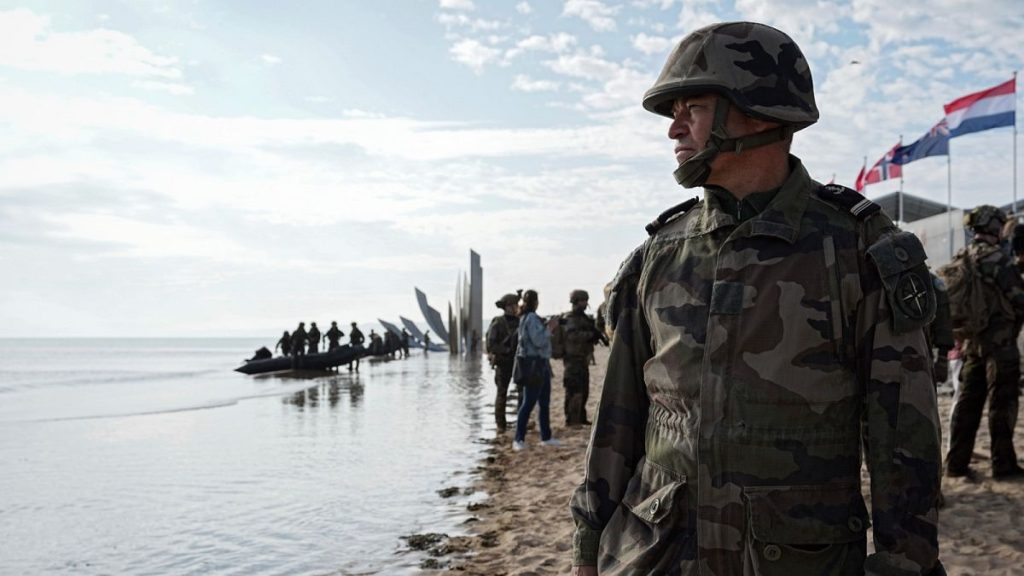D-Day, also known as Operation Overlord, was the largest amphibious operation in military history, taking place on June 6, 1944, when around 150,000 Allied forces landed in Normandy. As Europe gears up to mark 80 years since this historic event, preparations for commemorations and ceremonies are underway. French Navy landing craft arrived at Omaha Beach for a rehearsal, joined by US Army vintage Harley Davidson motorbikes in a parade across the Normandy landing beaches. Meanwhile, British veterans departed from the coast of the UK heading to France to take part in parades, school visits, and other ceremonies. The official June 6 commemoration will honor all soldiers who participated in the landings.
The invasion of Normandy on June 6, 1944, involved over 150,000 troops from the Allies, utilizing more than 5,000 ships and landing craft in an unprecedented operation to break through Nazi leader Adolf Hitler’s defenses in Western Europe. This event remains the largest naval, air, and land operation in history and played a significant role in hastening the fall of Nazi Germany. Allied forces landed on five beaches in Normandy, with troops mainly from the US, UK, and Canada, along with support from other countries including France, Australia, Belgium, and more. This invasion, combined with pressures from other fronts, ultimately led to Germany’s defeat.
The D-Day commemorations will involve parades, school visits, and ceremonies to honor the soldiers who participated in the operations on June 6, 1944. The events will bring together veterans from various Allied nations, including the US, UK, Canada, and others, to remember the sacrifices made and the impact of the invasion on the course of World War II. As the world reflects on the significance of D-Day 80 years later, it serves as a reminder of the bravery and dedication of those who fought to secure freedom and bring an end to tyranny in Europe.
The invasion of Normandy marked a turning point in World War II, as Allied forces succeeded in establishing a beachhead in France and beginning the liberation of Western Europe from Nazi control. The massive operation involved careful planning, coordination, and execution, as troops landed under heavy fire and worked to secure a foothold on French soil. The courage and sacrifice of the soldiers who participated in D-Day are remembered and honored as part of the ongoing efforts to preserve the memory of their contributions to the war effort.
As preparations for the D-Day commemorations continue, the world reflects on the significance of this historic event and the impact it had on the course of World War II. The landings in Normandy represented a turning point in the war, as Allied forces launched a successful invasion that helped to weaken and eventually defeat Nazi Germany. The bravery and sacrifice of the soldiers who fought on D-Day continue to be honored and remembered, ensuring that their legacy lives on for future generations to appreciate and learn from.
The D-Day commemorations serve as a reminder of the importance of remembering the sacrifices made by those who fought and died in the defense of freedom and democracy. As veterans gather to participate in events marking the 80th anniversary of the landings in Normandy, they are joined by citizens, dignitaries, and military representatives from around the world in paying tribute to the heroes of D-Day. The lessons learned from this historic event continue to resonate today, as nations strive to build a better future based on the values of peace, freedom, and respect for human rights that are central to the legacy of D-Day and the sacrifices made by those who took part in it.


